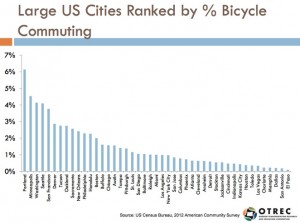
A team of doctors at the Department of Obstetrics and Gynecology at the University of Sherbrooke Hospital Centre in Quebec, Canada looked at the prevalence of Bt toxins in female patients, finding that the chemicals — which are often implanted into GMO crops including corn — were found in the majority of those who were surveyed. Those who were pregnant at the time of the survey, 93 percent of them had traces of Bt toxin in their blood, and 80 percent of their umbilical cords contained the chemical.
Food waste is no new issue for the U.S. or other developed countries throughout the world. For many years, we as a society have taken our resources—water, coal, oil, food—for granted. The amount of food that is wasted in the United States alone is staggering. According to the U.S. Environmental Protection Agency, more than 34 million tons of food waste was generated in 2010. This number is larger than any other category of material waste recorded by the agency’s municipal waste management division.
Continue reading... →Over 33 million women worldwide were represented by 100 global women leaders at the first International Women’s Earth and Climate Summit held two weeks ago in Suffern, New York. Nobel Peace Laureate, Jody Williams, announced last week that women are putting the world on notice that women will “raise our voices followed by serious actions” pointing to possible boycotts and protests of corporations that are contributing to climate change escalation.
Global grassroots women met with women world leaders “to bridge the gap between the women on the ground and the world policy makers”. The global women addressed protecting the water, oceans, air, and forests, focusing on the need for a deep systemic change concerning carbon emissions. High on the list of concerns was protection of food sovereignty/ stability, how oil, coal, fracking, and nuclear industries which are negatively impacting climate change, (and human rights issues surrounding these issues), protection of tribal lands and peoples, and protection of the rainforests.
Osprey Lake, Co-Director of the recent International Women’s Earth and Climate Summit, proclaimed, “Nature is not waiting while politicians debate. We need a deep overall analysis about climate change right now. Enough is enough.”
Continue reading... →
The government shutdown is finally over — at least until the next time the budget clock runs out. It seems that a lot of stubbornness made that mess. According to reports from Capital Hill, it seems that the women in the Senate were the ones that cleaned it up. They were willing to go across party lines to reach a solution. An article in Huffpost Women illuminates the situation.

Support the young ones you know.
They have to take it from here
http://www.youtube.com/watch?v=eIZTMVNBjc4
Remember the first time you saw Inconvenient Truth? It was a game changer for me. So much so that right by the popcorn machine in the lobby of the theatre I decided to do my first podcast program called America the Green to wake us all up. I couldn’t just sit there and do nothing, right? No other film laid out the whole climate change horror like Al’s, until Chasing Ice.
Continue reading... →May this be a reminder that you are so needed in this world, at this time, to be the good, the change, the one (and you know what that is for you). If you are waiting for something to shift to do that, to be that, then don’t. The time is now.
Happiness holiday to you and your family. May you have the courage this year to just say YES.
From all of us at Women Of Green
Continue reading... →Here is a list of 20 sustainability trends that are changing the landscape. We’re keeping our eyes on these…
1. From economic collapse to a green economic recovery. Interest in all things “green” continues to grow as the economy sinks. About 34 percent of people are now more likely to buy environmentally responsible products, and 44 percent say that their environmental shopping habits have not changed during this downturn. Businesses are realizing the ability to minimize costs through environmentally conscious operations.
2. From carbon footprint confusion to footprint awareness. More than half of the global population is aware of the term “carbon footprint,” up from 38 percent in 2007. As this awareness grows, consumers will likely drive the sustainability market by demanding low carbon products.
3. From carbon offset doubt to market development. More companies will continue to offset carbon emissions, with an expected growth in the global carbon offset market of 20 percent in 2009. Despite this prediction, Clownfish hope that there will be a stronger trend for direct reductions rather than offsetting; as the old saying goes, “prevention is better than cure.”
4. From carbon-centric to water-centric. The UK has become obsessed with carbon footprints, but now the term water footprint has entered the corporate vocabulary. About 2.6 billion people have no access to clean water, a problem not isolated to developing countries. Businesses will no longer be able to ignore their water use and efficiency.
Continue reading... →




